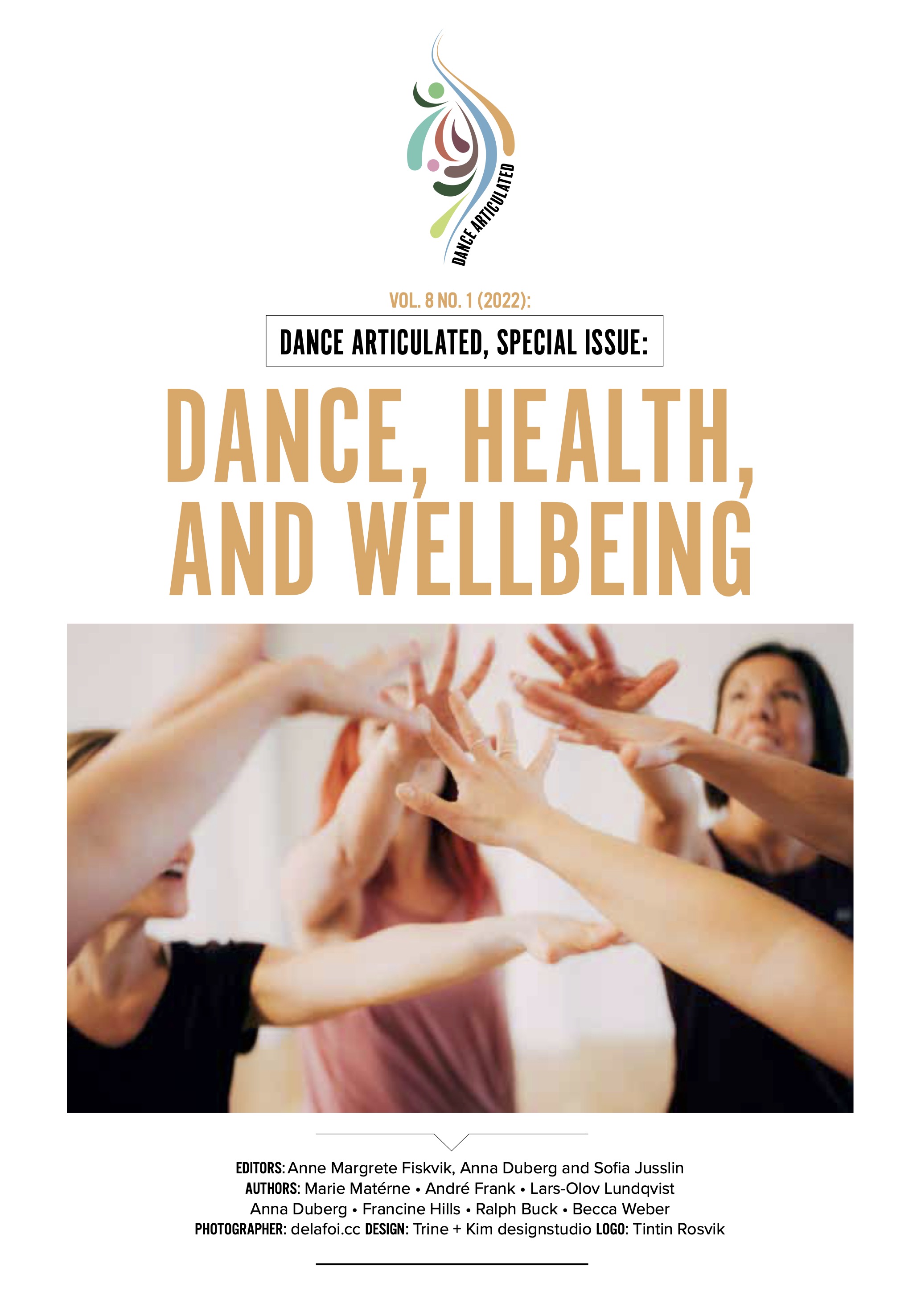Re-imagining ‘how’ community dance affects the health and wellbeing of older adults
DOI:
https://doi.org/10.5324/da.v8i1.5004Keywords:
Dance, health, aging, qualitative, worldviewAbstract
We are currently experiencing unprecedented population aging worldwide, with people over 65 projected to outnumber youth for the first time in human history. As such, the need to support this demographic’s health and wellbeing has never been more acute. There is a growing recognition that engagement with dance and arts provides numerous benefits for the health of older people, with existing research existing primarily within a biomedical model of efficacy. Driven by the primary research question “how does dance affect the health and wellbeing of older adults”, we reflect on the potential insights gained by returning to the root of research aims and methodologies. Sitting in conversation with dance and health scholarship and leaning into critical gerontology debate, this article broadens discourse to consider not only how evidence is articulated, but as importantly, how it is being asked. Through a series of exploratory “how” questions that critically engage with literature from practitioner, participant, and sector perspectives, we consider elucidating the origins of research enquiry as fundamental to broadening and deepening our understandings of the benefits of community dance for the health and wellbeing of older adults.



